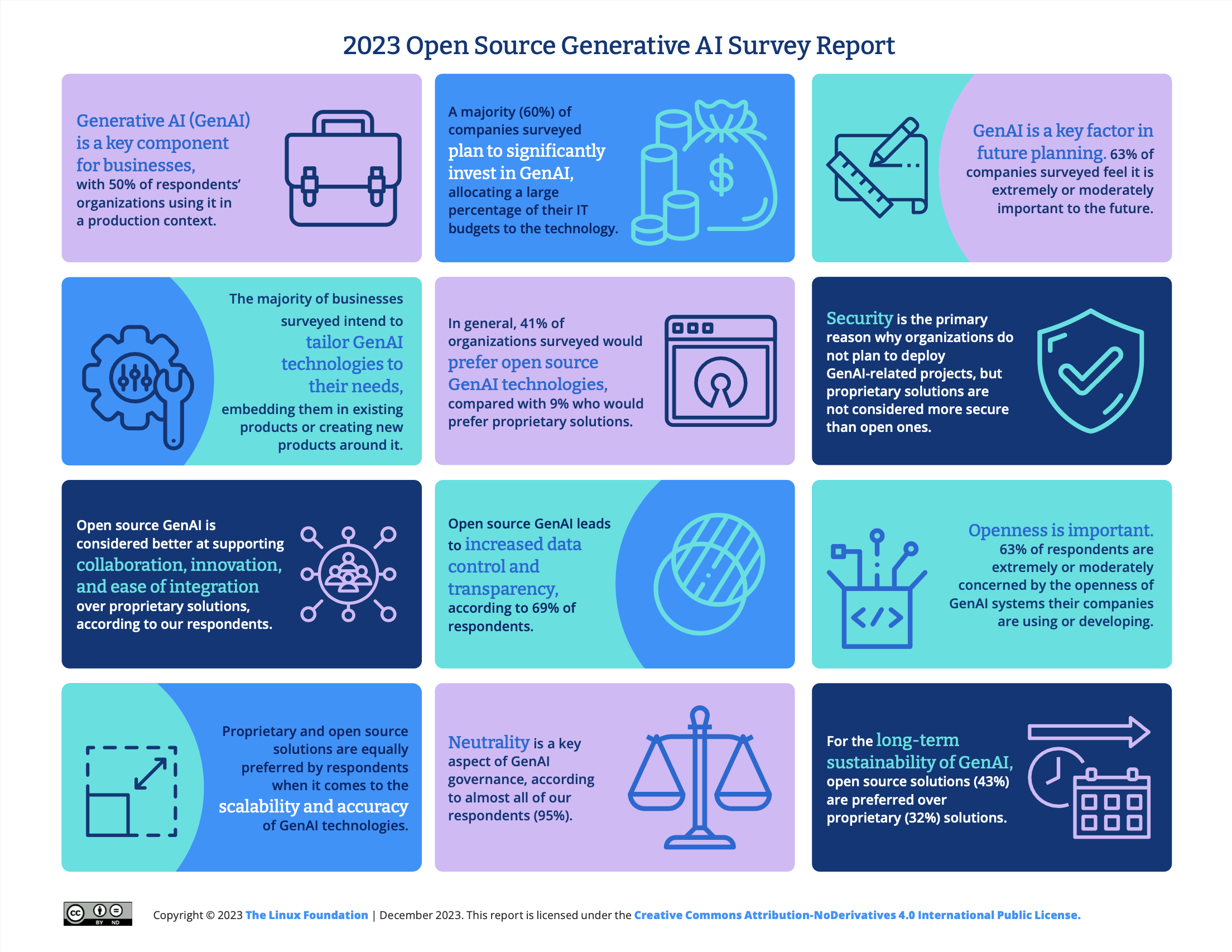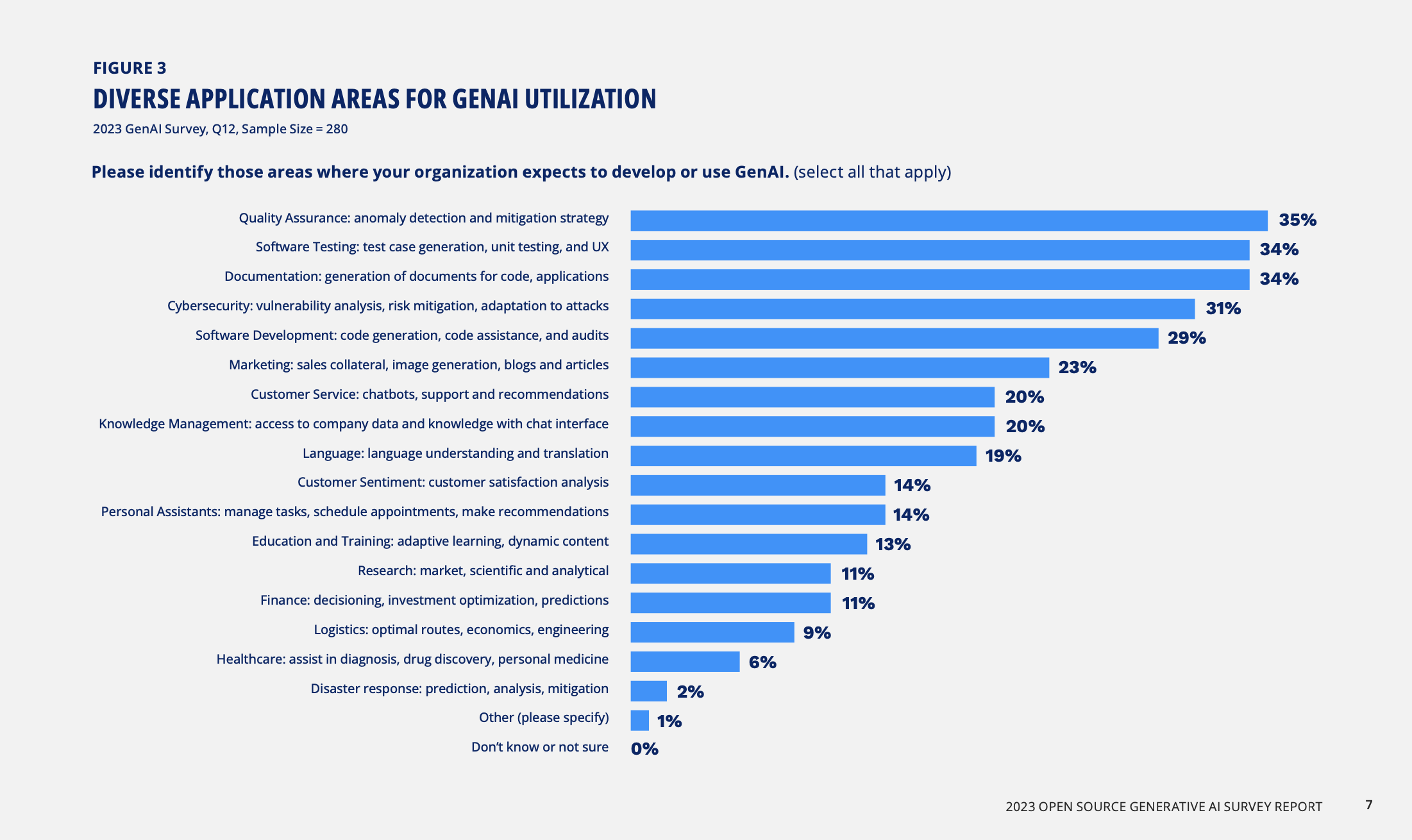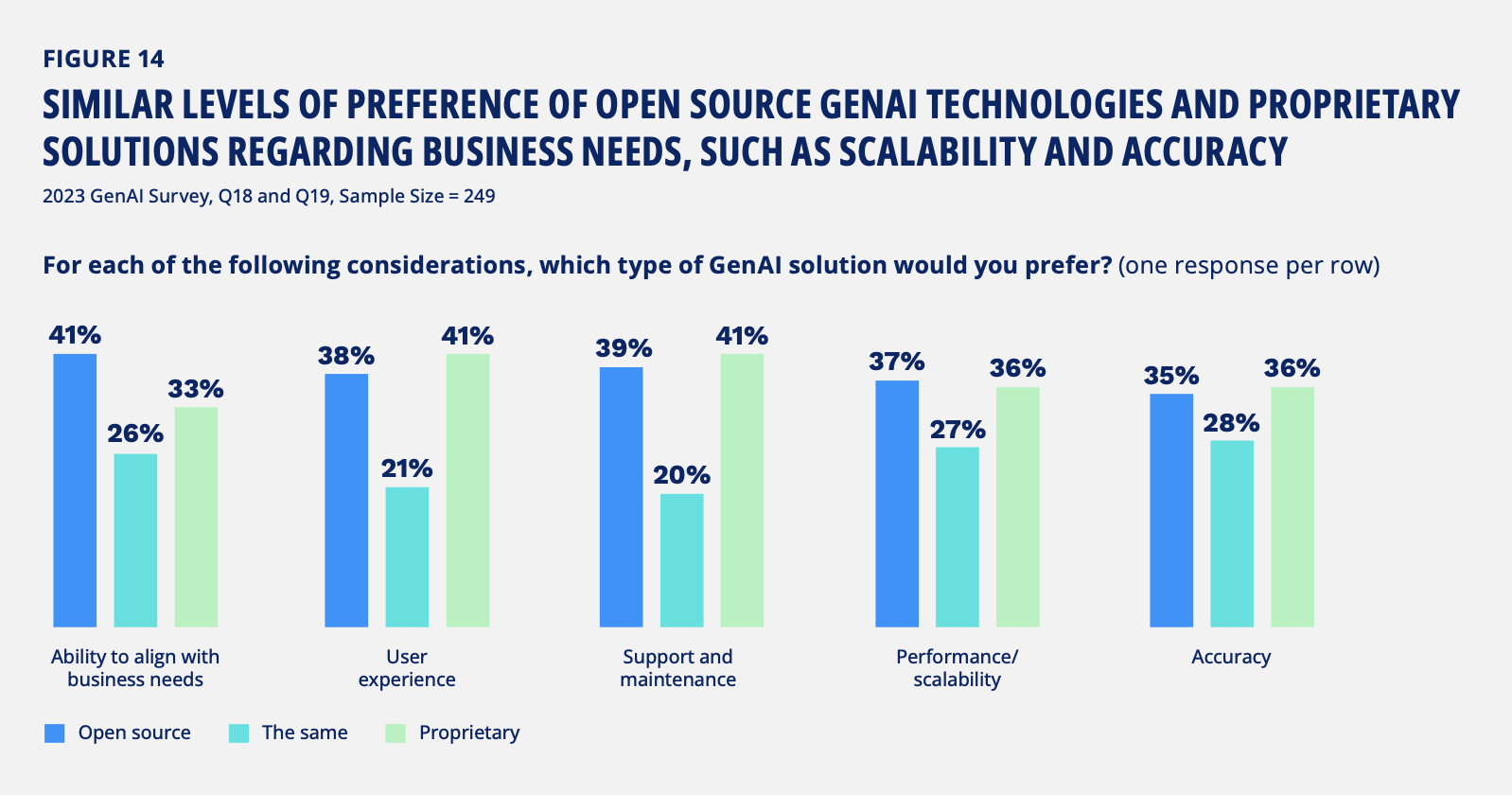The potential applications of Generative AI (GenAI) are expansive, from creating intricate artworks and composing music to designing pharmaceutical compounds and simulating human language. GenAI has become a focal point of both excitement and scrutiny. Open source initiatives play a pivotal role in advancing GenAI by democratizing access, encouraging diverse contributions, fostering innovation, and uncovering biases in development.
2023 Open Source Generative AI Survey Report
 A global survey conducted by LF AI & Data in collaboration with Linux Foundation Research delves into GenAI’s integration into businesses and its openness. This report explores findings highlighting sustainable and ethical development, focusing on AI systems like large language models (LLMs) and usage of open-source databases, applications and frameworks in the enterprise and industry. Forward written by Stella BIderman, Executive Director, EleutherAI.
A global survey conducted by LF AI & Data in collaboration with Linux Foundation Research delves into GenAI’s integration into businesses and its openness. This report explores findings highlighting sustainable and ethical development, focusing on AI systems like large language models (LLMs) and usage of open-source databases, applications and frameworks in the enterprise and industry. Forward written by Stella BIderman, Executive Director, EleutherAI.
Intended Audience
- Decision-makers within enterprises: C-Suite executives, directors, and managers responsible for strategic decisions on GenAI adoption and investment.
- AI and tech professionals: Individuals in AI, tech, and data science roles seeking insights into open-source GenAI trends.
- Policy makers and regulators: Engaged in AI industry policy-making, aiming to comprehend preferences and concerns shaping ethical AI policies.
- Academic and research communities: Scholars focused on AI ethics and open-source technology.
- Tech enthusiasts and general readers: Interested in tech trends and open-source business solutions.
Report Sections Key Insights
GenAI Journey Stages and Usage Plans:
- Highlights companies’ high involvement, financial commitment, and diverse application areas.
- Both end-user and vendor organizations are expecting substantial investments that will have a significant impact on projects and infrastructure changes within these companies.
Diverse Application Areas and Usage Strategies:
- GenAI profoundly affects operations, especially in product development and enhancement.

- Areas like software quality assurance, testing, cybersecurity, software development, and documentation demonstrate risk mitigation and automation potential.
Generative AI Openness:
- Explores the openness of open source software in GenAI, discussing limitations in code, data, and documentation access.
- Encourages the use of open source frameworks alongside closed models to foster innovation and integration.
Security and Trust:
- Identifies security as a major barrier to GenAI deployment (49% of respondents).
- Concerns encompass privacy, trust, unintended consequences, data breaches, and misuse of sensitive data.
Transparency and Accessibility:
- Emphasizes the need for AI technology transparency to build customer trust.
- Open source models are favored for accessibility, collaborative opportunities, and diverse data options critical for unbiased AI systems.
Neutral Governance and Responsible Innovation:
- Explores the importance of neutral governance in fostering innovation, diversity, ethical standards, and preventing technology misuse.
Performance and Business Needs:
- Compares open source and proprietary GenAI preferences in meeting key business needs, indicating a nearly equal preference across technical considerations.
 Conclusion
Conclusion
The report illuminates the evolving landscape of GenAI within enterprises, highlighting the shift toward open-source solutions and their advantages in collaboration, transparency, and integration. It emphasizes the crucial need for neutral governance frameworks to guide responsible and ethical innovation in the GenAI domain.
The full report can be accessed here.
